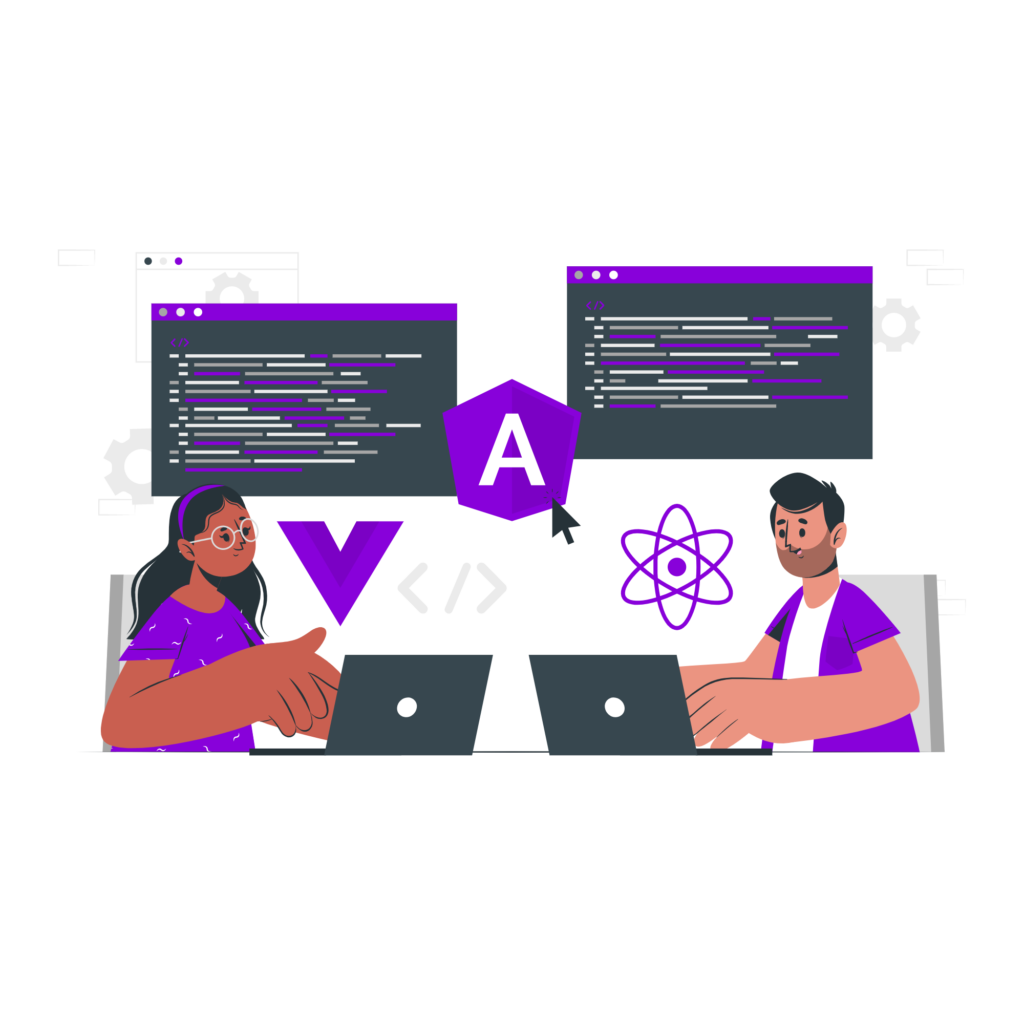
Angular Developer
Introduction to Angular Development
So, what exactly is Angular, and why should you care? Well, imagine Angular as the toolbox of a skilled craftsman. It equips you with all the necessary tools and materials to construct a masterpiece—the masterpiece being your web application. But before we dive into the intricacies, let’s start with the basics.
Understanding Angular Basics
Angular is a powerful framework developed by Google for building dynamic and interactive web applications. Unlike traditional web development, which relies heavily on manually manipulating the DOM (Document Object Model), Angular utilizes a component-based architecture, making it easier to manage and scale complex applications.
Components: The Building Blocks of Angular
In Angular, everything revolves around components. Components are reusable, self-contained units that encapsulate the structure, behavior, and style of a particular part of the user interface. Think of them as Lego blocks—you can assemble them together to create intricate designs.
Services: Powering Your Angular Applications
Services are another essential aspect of Angular development. They are responsible for encapsulating reusable logic and data manipulation functions that can be shared across multiple components. Services help maintain a clean separation of concerns and promote code reusability.
Directives: Enhancing User Interfaces
Directives are Angular’s way of extending HTML with custom behavior. They allow you to manipulate the DOM, add event listeners, and perform other dynamic operations. With directives, you can create interactive and responsive user interfaces with ease.
Routing: Navigating Through Your Angular App
Effective navigation stands as a cornerstone for every web-based application. Angular provides a robust routing mechanism that allows you to define navigation paths and map them to specific components. This enables users to navigate seamlessly between different views of your application.
Dependency Injection: Managing Dependencies
Dependency injection is a design pattern used to manage the dependencies of an application in a flexible and decoupled manner. In Angular, dependency injection is built into the framework and allows you to inject dependencies into components, services, and other objects effortlessly.
Angular Forms: Creating Interactive Experiences
Forms are an integral part of web applications, allowing users to input data and interact with the application. Angular provides powerful form-building capabilities, including template-driven forms and reactive forms, making it easy to create interactive and responsive form-based interfaces.
RxJS: Unleashing the Power of Reactive Programming
RxJS is a library for reactive programming using observables. It allows you to work with asynchronous data streams and handle events, making it ideal for building real-time and reactive applications. With RxJS, you can write clean, concise, and maintainable code that reacts to changes in data streams.
Testing Angular Applications
Testing is an essential aspect of software development, ensuring that your application behaves as expected and remains bug-free. Angular provides robust testing tools and utilities, including unit tests, integration tests, and end-to-end tests, allowing you to test every aspect of your application with confidence.
Advanced Angular Concepts
Once you’ve mastered the basics, it’s time to explore more advanced Angular concepts. This includes topics such as lazy loading, server-side rendering, state management with NgRx, and optimizing performance for large-scale applications.
Building Real-World Projects with Angular
The best way to learn Angular is by building real-world projects. Whether it’s a simple to-do list or a sophisticated e-commerce platform, building projects from scratch will help solidify your understanding of Angular concepts and best practices.
Joining the Angular Community
Last but not least, don’t forget to join the Angular community! Whether it’s through online forums, meetups, or conferences, connecting with fellow Angular developers is a great way to share knowledge, learn from others, and stay up-to-date with the latest trends and developments in the Angular ecosystem.
Skills Required Angular Developer
To excel as an Angular developer, you need a diverse skill set that encompasses both technical and soft skills. Here are some essential skills required:
- Proficiency in TypeScript: Since Angular is built on TypeScript, a strong grasp of this statically typed superset of JavaScript is crucial.
- Understanding of Angular Concepts: Familiarize yourself with Angular concepts such as modules, components, services, directives, pipes, and dependency injection.
- HTML/CSS: Solid understanding of HTML5 and CSS3 is necessary for building user interfaces and styling Angular applications.
- Knowledge of RxJS: RxJS is a powerful library for reactive programming in JavaScript. Understanding observables, operators, and reactive patterns is essential for building reactive Angular applications.
- Experience with RESTful APIs: Many Angular applications interact with backend services via RESTful APIs. Knowledge of HTTP protocols and asynchronous data fetching is essential.
- Testing Skills: Proficiency in writing unit tests, integration tests, and end-to-end tests using tools like Jasmine, Karma, and Protractor.
- Problem-Solving Skills: The ability to troubleshoot issues, debug code efficiently, and find creative solutions to technical challenges is invaluable.
- Version Control Systems: Experience with version control systems like Git for collaborative development and code management.
- Soft Skills: Effective communication, teamwork, time management, and adaptability are essential for success as an Angular developer.
